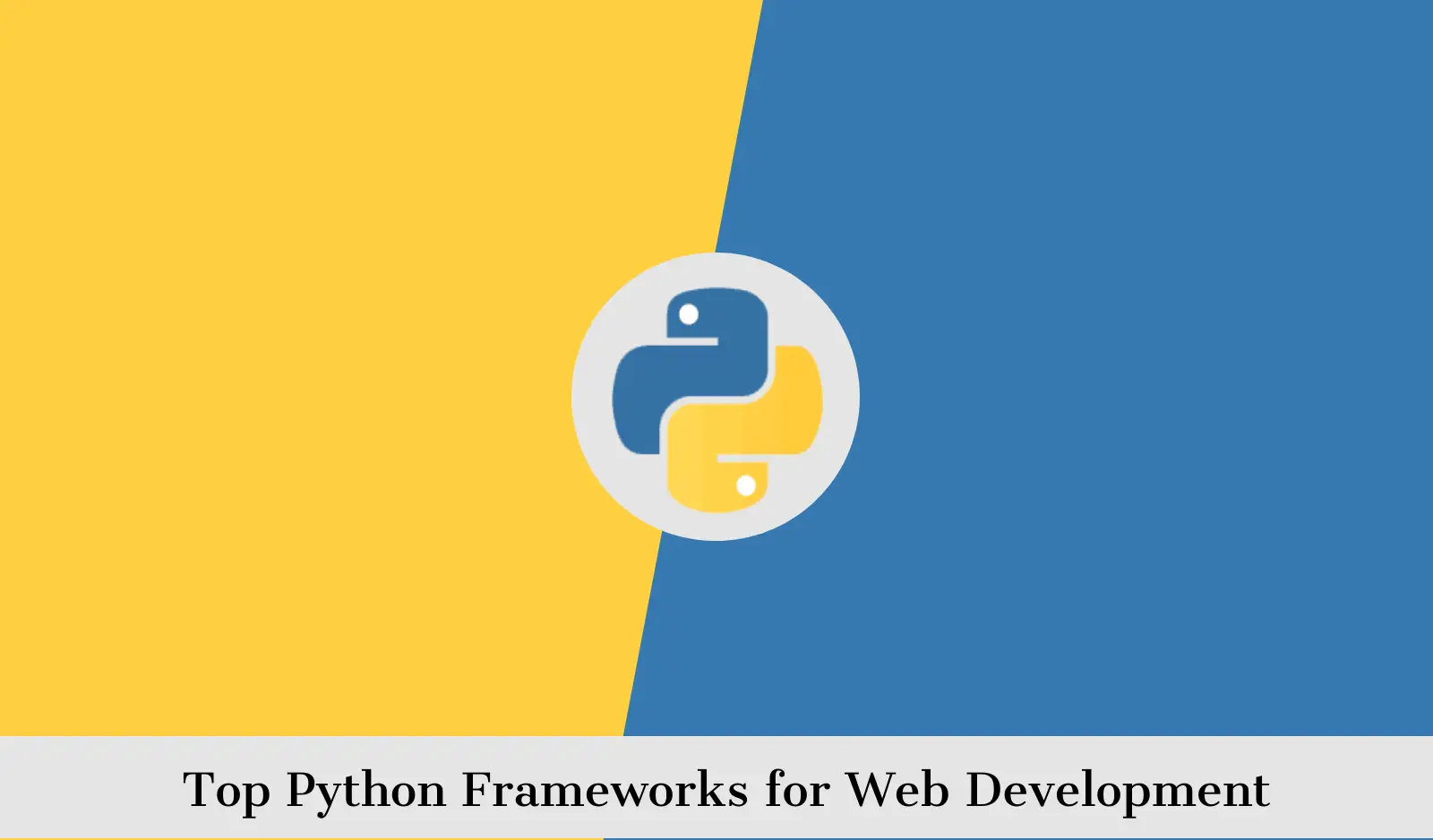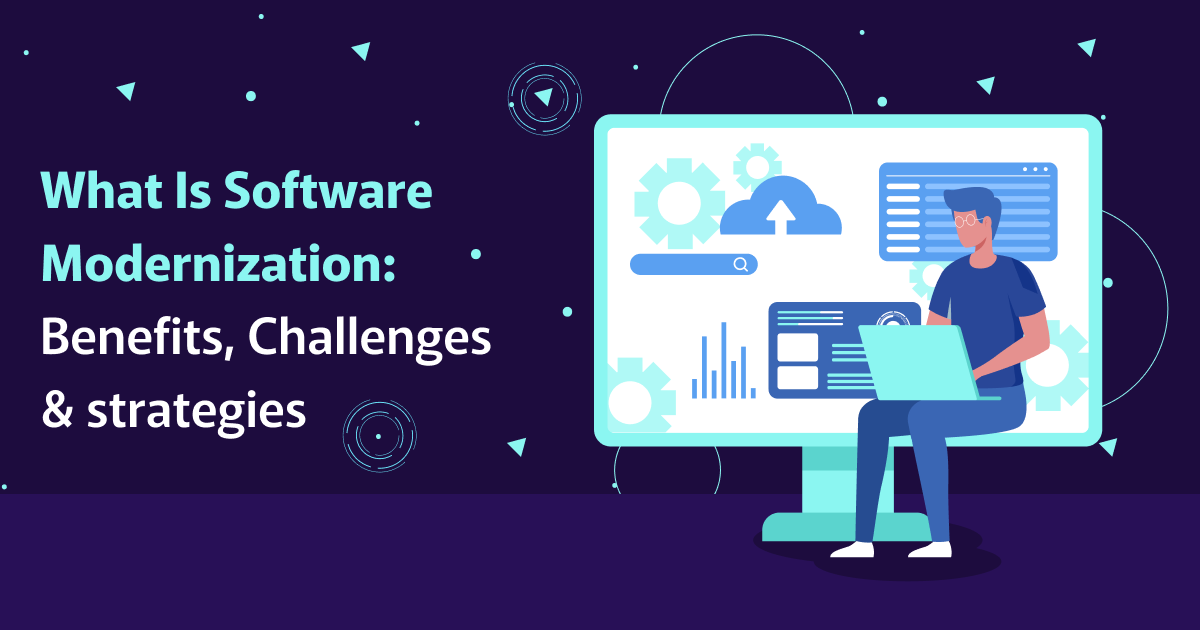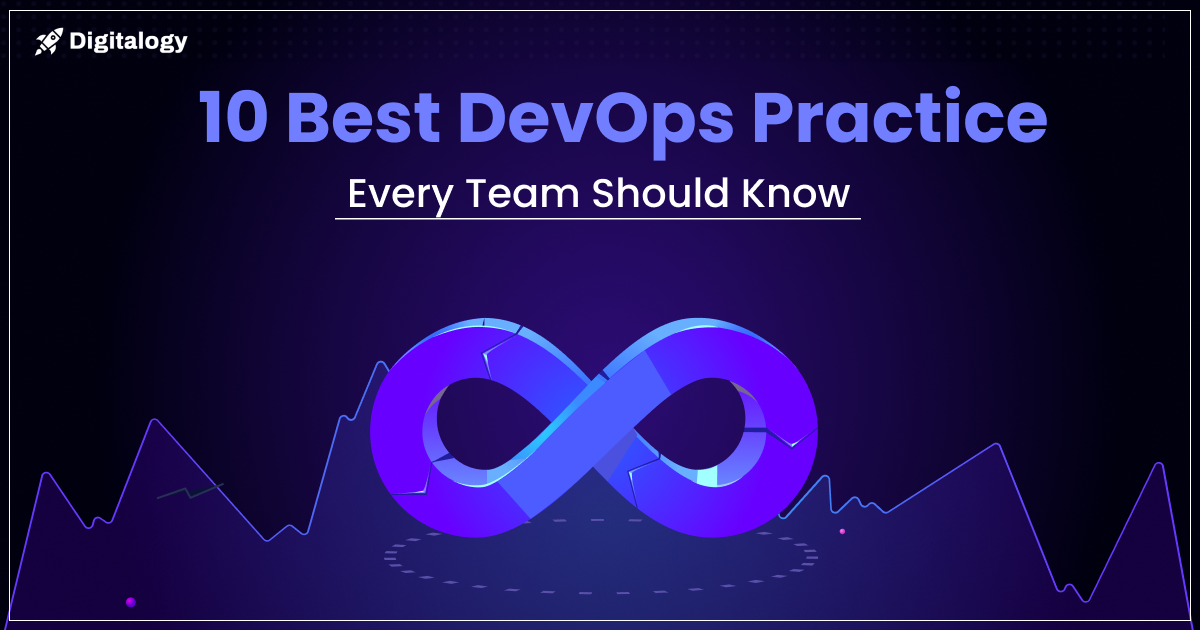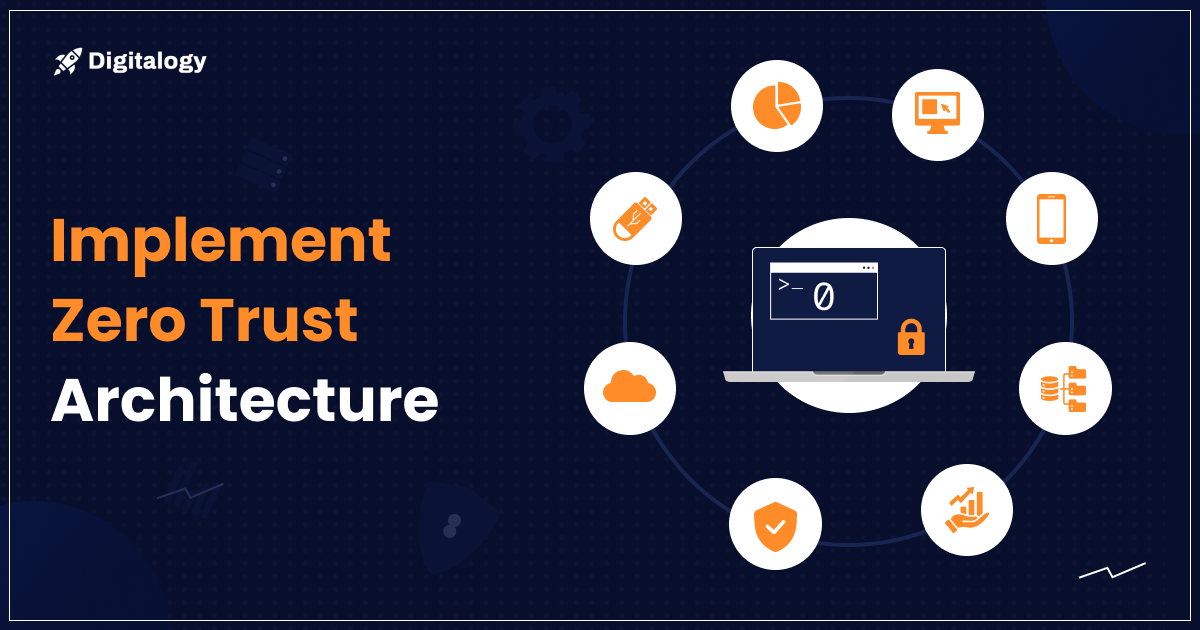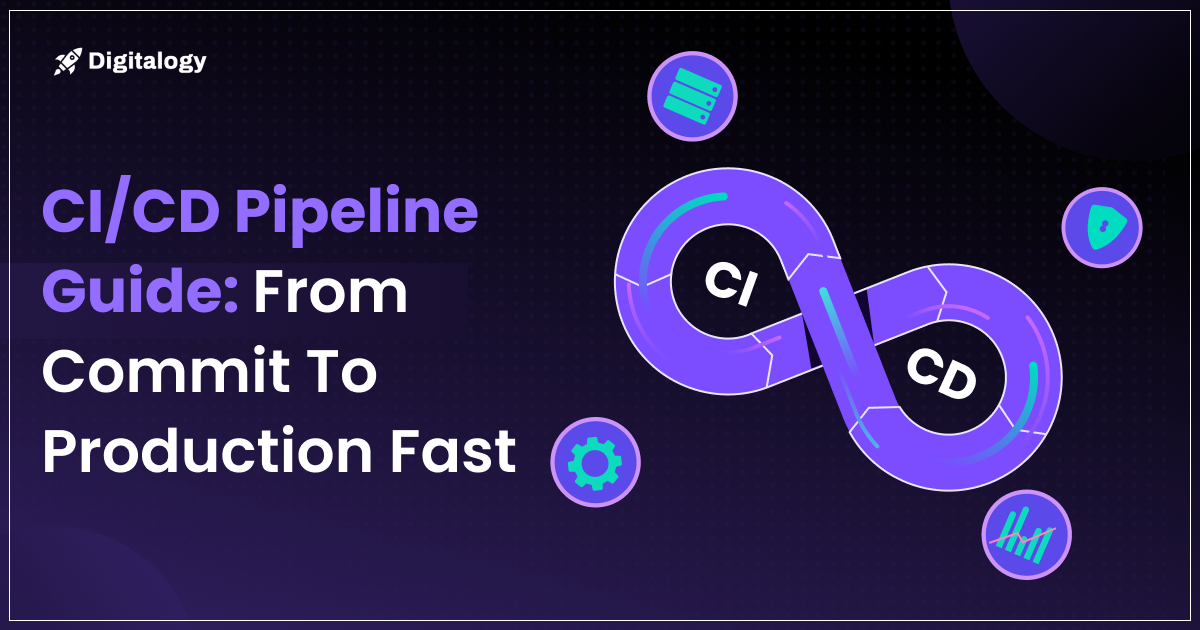Over the years, Python has become the preferred choice of programming language for thousands of developers due to its versatility and abundance of frameworks. Beyond frameworks, there’s another essential component that makes Python so versatile: its libraries. To harness the full potential of Python, there are certain Python libraries a software developer must know. These libraries cover various functionalities and can significantly optimize the development process. In this write-up, we’ll shed some light on the Best Python Frameworks for Web Development analyzing why should you use one for your next project.
Python is easily one of the best high-level programming languages for more advanced domains such as Data Science, Artificial Intelligence, and Machine Learning, to name a few, but it is equally loved for its web development prowess. The various Python frameworks for the web play an equally important role in increasing the language’s popularity. But as we know there are pros and cons to each and everything. So, read on to get an in-depth idea about these Python frameworks.
What Are Python Frameworks?
The role of any framework, not just Python, in general, is to provide a layer of abstraction to the developer, which leads to writing less code, making the life of a developer so much simpler. In easier terms, a framework comes with loads of built-in functions ready to be used for custom application development. By using the best Python frameworks for web development, a developer can practically forget about the more common and low-level details, such as sockets, protocols, and handling database communication.
Some of the features of a web development framework include:
- URL Routing: Ensures that the URL mapping exists and the routing of the URLs is working as expected
- Input Form Handling & Validation: Make sure that your web form is handling the data correctly and that the validation checks are in place as functional
- Output Formats with Template Engine: Offers the option to generate the desired content type, such as JSON, XML, or HTML, using the framework’s template engine
- Database Connection: Manages the connection and steady communication between the application and the database
- Web Security Measures: Offers protection against known security threats, such as SQL Injection, Cross-Site Scripting, Cross-Site Request Forgery, and more
- User Session Management: Ensures that the user data is cleared once the session has ended
Why Use Python Framework?
One of the reasons why a developer should adopt the best Python web framework is that it significantly speeds up application development, allowing the developer to focus on optimizing other aspects of the application, such as application logic, responsiveness, testing and eliminating bugs, and its performance.
By using a framework, a Python developer can reuse a majority of their code for the usual HTTP operations, further reducing time to market. Frameworks also allow the developers to structure their projects in a way that makes it easier for other developers with knowledge of the framework to understand and maintain the project.
Types of Python Frameworks
Before we move to the various top Python frameworks we have for you, let’s first go over the various types of frameworks the programming language has to offer. Python frameworks have been divided into 3 main categories:
- Full-Stack Frameworks: Offers a complete package for web development, including the necessary components, such as the frontend, backend, and database. Full-stack frameworks are best for building a full-fledged web application.
- Micro Frameworks: Micro frameworks are highly lightweight, and small, and offer very few features compared to their Full-Stack counterparts. Micro frameworks are best used for adding specific additional components and feature sets to projects while building an application.
- Asynchronous Frameworks: They are very similar to Micro frameworks in nature, with the only difference being the additional ability to handle multiple concurrent connections by utilizing Python’s asyncio library.
Popular Python Frameworks for Web Development
In the previous sections, we delved extensively into the fundamentals of a Python web development framework and discussed some of the reasons why Python developers should use it. In this section, we’ll take a deeper dive into some of the top Python frameworks we have gathered, especially for those aspiring to excel as a Python developer.
1. Django

Type: Full-Stack Framework
Github Stars: 53.3k
Fork: 23k
Django is a high-level full-stack framework that focuses on clean and rapid application prototyping and development. The Python framework Django has been designed from the ground up to be as fast as possible and to automatically take care of all the hassle involved in web development for you. The framework offers best-in-class security against common threats and lets you scale your web applications to tackle high demands with minimal developer involvement.
Developed by the veterans in web development, Django comes with loads of features, such as user authentication, site maps, and RSS feeds, and gets regular updates to address bugs and add new features. Owing to its popularity developers, businesses, and even governments trust Django and have used it to build projects of all kinds and scales.
2. Flask

Type: Micro Framework
Github Stars: 52.7k
Fork: 13.9k
Much like Bottle, Flask is also a lightweight WSGI microframework for web application development in Python. Flask aims to get developers started quickly by developing efficient and highly scalable web applications. Initially, Flask was a simple wrapper based around Werkzeug, a WSGI web application library, and Jinja, a feature-rich Python template engine. Later, Flask was turned into a full-on web development framework focused on simplicity and getting things done.
The Flask framework in Python supports a range of extensions that add a ton of useful features to it, which otherwise come bundled in with other Python web development frameworks. These extensions can add support for database integration, upload handling, form validation, and much more, making Flask production-ready within a very short period.
3. Tornado

Type: Asynchronous Frameworks
Github Stars: 19.5k
Fork: 5.3k
Tornado is an asynchronous framework that is arguably the best Python web framework for projects that require handling thousands of network connections. Tornado does this by making use of a non-blocking network I/O that makes it a perfect option for long polling, WebSockets, and other applications that rely on a long-lived connection to the user.
Some of its many key features include a built-in HTTP server, easy to scale with high demands, the ability to be deployed into real-time services, web templating options, support for third-party authentication services, and localization support.
4. Sanic

Type: Asynchronous Framework
Github Stars: 14.2k
Fork: 1.3k
Sanic is an asynchronous web development framework for Python that is built to be fast, and it does so by using the async/await syntax. The result is a non-blocking Python code that is blazing fast. Sanic supports ASGI (Asynchronous Server Gateway Interface), the successor to WSGI, which makes it compatible with other ASGI web servers.
The framework is maintained entirely by the community and offers several useful features, such as support for decorators, plugins, and class-based views, allows reading and writing of cookies and offers logging capabilities of multiple types. And, in case you were wondering, the name does sound a lot like Sonic, the speedy hedgehog.
5. Falcon

Type: Micro Framework
Github Stars: 8.1k
Fork: 804
The Python micro framework Falcon is much like the many other optimized Python web development frameworks in this list, offering fast application development with as little clutter as possible. The Falcon framework comes with support for the REST API architecture and adds that extra bit of performance and flexibility to your Python applications.
This WSGI-compatible framework offers many other benefits, such as the easy extensibility with templates, add-ons, and packages, ease to scale with high reliability, exception handling, the DRY (Don’t Repeat Yourself) principle, an optimized code-base, and much more.
6. Bottle

Type: Micro Framework
Github Stars: 7k
Fork: 1.4k
Bottle is a lightweight and fast WSGI(Web Server Gateway Interface) microframework for Python that is extremely simple to use. The framework is distributed as a single file and has zero dependencies on anything else except for Python’s standard library.
The Bottle framework comes equipped with several features out-of-the-box, such as support for database plugins, a built-in HTTP development server, support for additional WSGI-capable HTTP servers, a built-in template engine, and function-call mapping with clean and dynamic URLs. The feature-rich nature of Bottle makes it the best Python web framework for web developers in 2025.
7. CherryPy
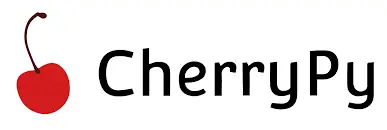
Type: Micro Framework
Github Stars: 1.3k
Fork: 303
CherryPy is the next best framework in our top Python frameworks list for 2025. Being a micro framework, CherryPy is fast, lightweight, and provides a minimalistic approach to developing web applications. It is an object-oriented framework, and working with it is much like working with Python, resulting in a smaller development period. Businesses and organizations can use the Tidelift subscription service to gain access to enterprise-grade security and features from CherryPy.
Some of the features of this Python framework include built-in profiling and testing tools, out-of-the-box support for plugins, the option to run multiple HTTP servers at once, a robust configuration system, and the ability to customize everything. CherryPy also offers a range of tools for performing tasks related to authentication, caching, static content, sessions, and much more.
8. Pyramid

Type: Full-Stack Framework
Github Stars: 3.5k
Fork: 856
Pyramid is yet another full-stack framework for Python that aims to help you through your web development journey. You can think of the Pyramid as a perfect blend of features from both the full-stack and microframeworks as the Pyramid enables you to start small with a module or two and scale your project later on. This makes the Pyramid a perfect and versatile choice of framework for both easy and complex projects.
Pyramid is among the best Python frameworks for web development as it comes loaded with several features, such as its extensibility, built-in templating, database handling, security options, support for small and full-scale apps, renderers, predicates, and much more. Pyramid’s robust support for APIs, regular bug fixes, and clear documentation make it easier to get started with this framework.
9. TurboGears

Type: Full-Stack Framework
Github Stars: 753
Fork: 69
TurboGears is a full-stack framework that takes the best features from some of the top Python frameworks for the web, such as Django, Rails, and the previous iteration of TurboGears, and offers it in a single package to web developers. The framework comes with the option to be used as either a micro framework or a full-stack framework for projects of varying scales.
Other notable features of this web development framework include smooth scalability, robust Object Relational Mapper with support for multiple databases, a developer-friendly template system, and a new widget system that simplifies building AJAX-heavy applications.
10. Web2Py

Type: Full-Stack Framework
Github Stars: 1.9k
Fork: 845
Web2Py is an award-winning full-stack web development framework for Python that is fully scalable and offers fast application development. You can use Web2Py with its web-based IDE, which comes equipped with a code editor, and a debugger, and offers one-click application deployment. Web2Py has taken inspiration from Ruby on Rails and Django, and implemented a handful of features from them, such as rapid application development, validators, and the ability to generate forms from database tables.
Other useful features of Web2Py include a multi-threaded SSL-enabled web server with streaming support, support for various relational databases, full backward compatibility, and protection from common website vulnerabilities. In case you’re wondering, yes, it does follow the MVC design, server-side form validations, and postbacks, making your code easy to read, scale, and maintain.
Conclusion
Python has a wide variety of web development frameworks, such as Django, Bottle, Web2Py, Tornado, and many others. Each of these offers a compelling set of features while taking most of the hassle away from the web development process, making it a smooth activity. Being one of the most popular programming languages for web development in 2025, we tried to cover 10 of the best Python frameworks for web development in this article. We hope that you’ll find this collection of frameworks for web development useful for your next project, and if you think we missed anything, do let us know.

